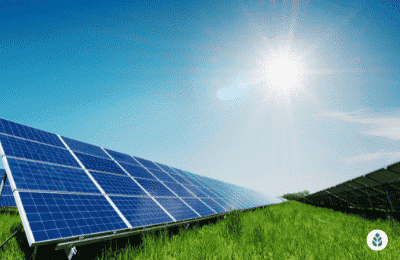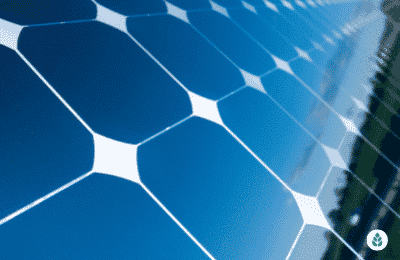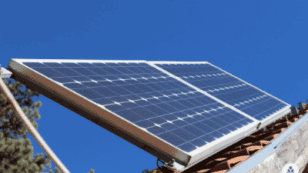
Michigan Solar Incentives (Rebates, Tax Credits & More in 2024)
In this guide to reducing solar conversion costs using solar incentives in Michigan, you’ll learn:
- What incentives are available for solar equipment in Michigan?
- How do the solar benefit programs in Michigan affect the average cost of converting to solar power?
- What are the most important and beneficial solar perks to take advantage of in Michigan?
Each product and or company featured here has been independently selected by the writer. You can learn more about our review methodology here. If you make a purchase using the links included, we may earn commission.
Do Michigan Solar Incentives Allow For Solar Savings
Yes! In Michigan, the solar incentives make going solar far more affordable and can effectively save you thousands of dollars on your conversion process.
The typical solar customer in The Great Lakes State pays around $3.62 per watt for photovoltaic (PV) equipment, which is well above the national average of $3.33.While the cost of solar in Michigan is a bit higher we still believe solar is worth it due to Michigan residents’ relatively low energy needs mean that most customers can get away with a 7 kilowatt (kW) system, which is much smaller than the U.S. average of 9 kW.
That means the typical up-front cost of solar panels in Michigan sits at around $25,340 — a few thousand dollars under the national average.
The state doesn’t have the best incentives for solar power, likely because its Renewable Portfolio Standard (RPS) leveled off in 2021. However, using the solar perks that are available, you can get your effective cost down to under $18,000 in most cases, and you can even turn a profit over the lifespan of your system.

The Green Panel

Local Service
Average cost
Pros
- Outstanding customer service
- Excellent reputation
- Great warranty coverage
Cons
- No leases or PPAs

Strawberry Solar

Local Service
Average cost
Pros
- Outstanding customer service
- Representatives are experts on local policies
- Educational, no-pressure sales approach
Cons
- Limited warranty coverage
- No leases or PPAs
- Limited brands of solar equipment available

Blue Raven Solar
Pros
- Industry-leading in-house financing
- Competitive pricing
- Excellent reputation
Cons
- Doesn't offer solar batteries (coming 2022)
The solar benefit programs in your area may not be the most helpful, but they still help make converting to solar energy more appealing. We’ll include a breakdown of the solar incentives in MI in the table below, along with the average savings you can expect from each.
| Solar Benefit Programs in Michigan | Incentive Type | Description | Occurrence | Estimated Dollar Amount You Can Receive |
| Federal Solar Investment Tax Credit (ITC) | Federal | This perk provides a credit to your income tax liability in the amount of 30% of your total system cost. | One-time: Gets applied once when you file your taxes after converting to solar. However, unused credit can roll over for up to five years. | $7,602, on average |
| Michigan Saves Home Energy Loan Program | State | A loan program that helps achieve low down payments and annual percentage rates for solar loans. | One-time: Gets applied once when you finance your PV panels through the program. | Varies based on your interest rate, your total system cost and more |
| Alternative Energy Property Tax Exemption | State | Exempts the home value added by your panels from taxation. | Ongoing: Your property taxes will never be affected by the value your home solar system adds to your property. | Varies based on your system size and value |
| Net Metering | Local | Provides credits on future electric bills in accordance with all excess energy you send to the electric grid. Net energy metering is NOT mandated but is offered by some utility companies. | Always in Effect: For as long as your panels generate electricity, you can take advantage of net energy metering (if it’s offered by your utility provider) | Varies based on system size, your monthly energy consumption and more |
| Local Incentives | Local | Cash-back incentives and other perks offered by individual utility providers or local governments | Varies based on the specific perk | Varies based on the perk, your system size and more |
What Do Michiganders Need to Know About the Federal Solar Tax Credit?
The federal tax credit gets applied to your income tax burden for the year you install your PV equipment. This federal solar tax credit is equal to 30% of your entire system value, which, in MI, averages out to $7,602. Of course, the value of the credit will scale with the cost of your system, so larger and more expensive systems will yield a larger credit.
The federal credit has been in place since 2005, and it has been equal to 30% of your system value up until 2022. In January, the credit dropped to 26% and was scheduled to drop to 22% in 2023 and disappear in 2024.
Thankfully, the Inflation Reduction Act (IRA) was a surprise piece of legislation for the solar industry that pushed the credit value back up to 30% until 2032 — including retroactively for systems installed between January and August of 2022. The new credit rate schedule is as follows:
- 30% credit for all systems installed between 2022 and 2032
- 26% credit for all systems installed in 2033
- 22% credit for all systems installed in 2034
- The credit will no longer be available in 2025
How to Claim the Federal ITC in Michigan
The federal credit is a breeze to apply for and just requires a single tax form. You can follow the steps below to make sure you get this perk.
- Step 1: Install your system.
- Step 2: When you’re ready to file your taxes for your installation year, go to the IRS website and print out form 5695. This is the form for reporting residential energy credits to the Internal Revenue Service.
- Step 3: Fill out the form prior to filing your taxes. To do so, you’ll need some information about your system — like the cost and installation site — and some information about your installer — including contact information.
- Step 4: Include the form along with your taxes.
If you use tax software to prep and file your taxes, you can usually follow on-screen prompts regarding clean energy source equipment rather than filling out the physical form.
EcoWatch’s Opinion on the Federal ITC in Michigan
In our opinion, the federal credit is the single most important perk you can take advantage of to effectively reduce the cost of your solar panels. It’s especially important because Michigan doesn’t have the best state benefit programs.
Not only does the credit provide massive value, but it’s easy to apply for and is available to all solar customers without any eligibility requirements.
The only potential downside to the credit is that it affects your tax burden rather than acting as a solar rebate. That means you can’t take advantage of the perk if you don’t owe money on your taxes. If you don’t expect to owe an average of around $1,520 per year on your tax bill for the next five years, then the credit you can take will be less than the maximum 30%.
Watch Below: What Should You Expect When Going Solar in Michigan?
What You Should Know About the Michigan Saves Home Energy Loan Program
The goal of this nonprofit solar financing program is to make solar loans more affordable and accessible to more Michigan residents. It accomplishes this goal by partnering with third-party lenders to bring down your APR and down payment requirements for solar equipment. It can also be used for other energy efficiency upgrades that reduce emissions.
Of course, this perk only applies if you plan on financing your solar panels. If you’re looking to pay cash — which yields the greatest return on investment over time — or use a lease or power purchase agreement (PPA) to obtain your panels, this incentive will not apply.
Unfortunately, it’s not possible to estimate the total savings one can achieve using this benefit program. However, if it means the difference between going solar and not going solar for you, you could be looking at an average lifetime savings of around $32,403. That’s the total energy savings you can expect from your solar power system over the panel lifespan.
How to Claim the Michigan Saves Home Energy Loan Program
Enrolling in this program is a bit more involved than taking advantage of some other perks. The steps below should help you navigate the program.
- Step 1: Head over to MichiganSaves.org, which is the program’s primary website
- Step 2: Click on “Find Your Contractor” and follow the prompts to choose a solar installer. You must choose a program-approved installation company in order to be eligible for the loan program.
- Step 3: Once you’ve chosen your installer, click on “Apply for Financing” and follow the prompts. You’ll need to include information about your home and the installer you’ve chosen, as well as the home improvement project you’re carrying out — in this case, solar panel installation.
- Step 4: A program administrator should connect with you and walk you through the rest of the process.
EcoWatch’s Opinion on the Michigan Saves Home Energy Loan Program
This financing program is a great option for any resident looking for financial assistance to convert to solar power. Since the average total solar system cost in Michigan is over $25,000, many homeowners will be unable to afford a cash purchase, and some may not be able to get suitable interest rates or afford a down payment. This program helps solve both issues.
The financing program does take some time to apply for, and you’ll need to work with the program administrator after the application process to ensure things go smoothly. However, while it’s a sizable time commitment, it can be massively valuable if it means saving on energy bills, especially since energy is far more expensive in MI than in most states.1
What You Should Know About the Alternative Energy Property Tax Exemption in Michigan
One of the benefits of converting to solar energy is that the solar panels are expected to raise your home value by a substantial 4.1%, on average.2 Under normal circumstances, home improvements like this that boost your property value also cause your property taxes to go up.
Thankfully, the state waives the value added by your PV system from taxation, so you’ll see no bump in your taxes owed. This is a great way to reduce the long-term financial burden of converting to solar energy.
It’s difficult to estimate exactly how much this can save you because there are a lot of moving parts. However, if we assume your system is worth the average for the state — around $25,340 — and your tax rate is the state average — 1.64% — then that’s an average of $415 per year.3
Over the expected minimum lifespan of your panels — about 20 years — that’s a total savings of $8,311. The actual savings will be lower because of equipment depreciation, but it’s still substantial.
How to Claim the Exemption for Property Taxes in Michigan
Perhaps the best part about the exemption is that it’s automatic. Your local tax assessor will simply not include the value of your panels when assessing your taxes. You don’t need to file any paperwork or spend any time or effort to take advantage of this perk.
EcoWatch’s Opinion on the Exemption for Property Taxes in Michigan
Any PV incentive that is solely beneficial and doesn’t require any time or effort on your part is outstanding, in our opinion, and this exemption is no exception. Saving an average of about $8,300 with no work required makes this one of the most appealing incentives available in the area.
Net Metering in Michigan
Net energy metering (NEM) — often referred to using the term “distributed generation” in the State of Michigan — is a popular solar perk throughout the country that has proven to be one of the most beneficial for solar customers over time.
Through interconnection, net energy metering programs credit you for any excess energy your panels generate and send to the grid. Credits can drop future electric bills in months when you pull more from the grid than you send.
Net metering helps you get the most value out of your solar panels and helps residents push closer to the average long-term energy savings of $32,403. Net energy metering in MI is especially helpful because of the above-average energy costs in the area.
Net energy metering (NEM) is mandated by the Michigan Public Service Commission (PSC), but the credit rate per kWh is the avoided cost rate, which is below the retail rate for electricity. This isn’t ideal, but it’s still massively helpful and should lead to significant savings.
It’s also important to note that a lot of states are seeing changes to NEM that are making it less beneficial for solar customers. Although the policy is already not available statewide, it might disappear altogether in the near future as it has in other areas.
How to Enroll in Net Energy Metering in Michigan
Enrolling in net energy metering is a simple process that very often doesn’t require any effort on your part. In most cases, your installation company will handle the paperwork for you. You can follow the steps below to make sure you get access to this perk if your electricity company offers it.
- Step 1: Contact your utility company and ask them to confirm that you have a bidirectional meter installed. Most utility companies have upgraded meters, but if yours hasn’t, it should do so for free.
- Step 2: Choose Michigan’s best solar installers and ask a representative to confirm that the installer will handle the application process for NEM.
- Step 3: Continue with the installation.
- Step 4: We suggest checking your electric bills for a month or two after the conversion process to make sure your credits are accruing.
EcoWatch’s Opinion on Net Metering in Michigan
In our opinion, net metering is the second-best perk available in your area after the federal credit. It helps maximize the value of your panels and bumps up your long-term savings from solar significantly. Additionally, it takes little to no effort to apply for, making the return on investment outstanding.
Ultimately, that means the policy isn’t nearly as beneficial as it could be because of the below-retail rate mandated by the PSC, but it’s still beneficial.
Since the state’s RPS goal has leveled off, it’s unlikely MI will make an effort to make NEM more beneficial in the coming years.
Local Solar Incentives in Michigan
In addition to the above perks, there is one rebate program offered by a local utility company:
- Lansing Board of Water & Light (LBWL) Residential Energy Efficiency Rebates: Customers of LBWL can take rebates for different energy efficiency upgrades, including solar adoption. The rebate for solar is up to $500 per kW installed, up to $2,000 total. Since the average solar array size in the area is 7 kW, most residents that are eligible for the program will be able to take the full $2,000.
It’s possible that new perks will pop up from local providers in the future. You can always check the Database of State Incentives for Renewables & Efficiency (DSIRE) for updated information.
Which Solar Incentives Are The Best In Michigan?
Above, we’ve discussed all of the perks available for solar conversion in your area. While these can all be beneficial, they aren’t all equal in their overall value or the ease of applying. Below, we’ll discuss what we believe are the top three solar perks that make converting to solar worthwhile in Michigan.
The Federal Tax Credit
In our opinion, you’ll get the most bang for your buck by taking the federal credit. Not only does this perk provide massive potential savings of around $7,600, but it’s also super easy to apply for and is available to all residents.
Plus, the value from the federal credit can be realized in under a year, depending on how much you owe in taxes the year you install your equipment.
Overall, this is the single perk we recommend taking over all others.
The Alternative Energy Property Tax Exemption
The exemption for property taxes is the next most beneficial incentive, in our opinion. It provides an average savings of over $8,000, and while it’s not as immediate as what you’d see from the federal credit, the value is still great over time.
Plus, this perk requires no action on your part to take, so you’ll automatically save on your property taxes when you convert to solar.
The Michigan Saves Home Energy Loan Program
Finally, we think this solar loan program is a better option than some of the other perks because it’s available to all residents and opens up the possibility of going solar to many customers. The loan terms are fair and affordable for most individuals, and the application process isn’t terribly long.
What’s The Near Term Outlook For More Incentives In Michigan?
As of right now, there is no plan in place to improve or add incentives for solar adoption in the area. Unfortunately, the state’s RPS leveled off in 2021, so it won’t be demanding any increase in power production from renewable sources unless the law is changed.
Since these goals are often what drive the adoption of new incentives, the future of perks in the area doesn’t look overly promising. This is not to say that the currently available perks will become unavailable; rather, there likely will not be any new incentives popping up anytime soon.
The cost information presented in this article is derived from a comprehensive analysis, incorporating data from multiple industry sources. The average cost per watt per state was calculated based on figures from Consumer Affairs, Energy Sage, and Berkeley Lab’s Electricity Markets & Policy Department. Additionally, monthly energy consumption and the average monthly cost of electricity were sourced from the U.S. Energy Information Administration, ensuring a well-rounded and accurate representation of the information presented.
FAQ: Solar Incentives in Michigan
In the sections below, we’ll include our responses to some of the most common questions we see from residents about the perks available and the future of the benefit programs in the area.
At this time, there are no plans for the state to make new incentives available or to improve the existing perks in the next two years.
As mentioned above, the state RPS leveled off in 2021. Since such standards are the driving force for new perks in many cases, it’s unlikely we’ll see improvements or additions to available incentives in the next two years unless a new RPS is mandated.
Solar Renewable Energy Certificates (SRECs) are credits you earn for all of the power generated by your solar panel system. You can sell the credits for a profit if there’s a local SREC market that is open and active. Unfortunately, there are no SRECs in MI, so this perk is unavailable to residents at this time.
The IRA provided two important updates to existing energy efficiency incentives.
First, it bumped up the tax credits available for some electric vehicles (EVs). The credit now reaches up to $7,500, depending on the make and model.
Second, it pushed the federal credit rate back up to 30% from 26% for installations in 2022. It also extended the credit program by ten years.
In our opinion, it’s unlikely that The Great Lakes State will see any new or upgraded incentives in the next two years. With a static RPS, there is little incentive for the state, local utility companies or municipalities to offer additional perks or improve the ones that already exist.
Top Solar Installers in Michigan Cities
Comparing authorized solar partners
-
- Outstanding customer service
- Excellent reputation
- Great warranty coverage
- No leases or PPAs
A+Outstanding Local Installer
Having trouble deciding? Click below and use our process to receive multiple quotes instead:

 233k
233k  41k
41k  Subscribe
Subscribe 






